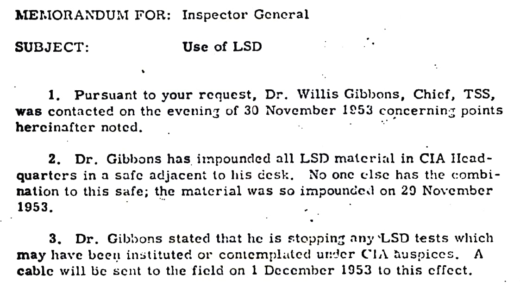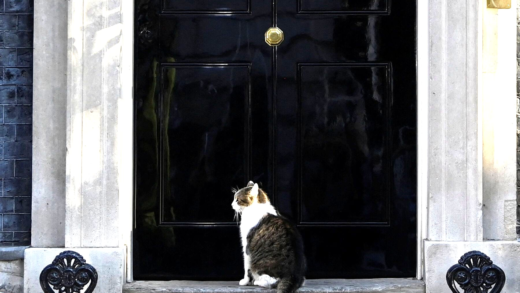Spiteful actions can damage relationships and create a toxic environment. However, they can also lead to humorous outcomes and unexpected creativity. Recognizing spiteful behavior is crucial for personal growth and relationship management. By learning from spite, individuals can transform negative emotions into positive actions and improve their interpersonal dynamics.
Spiteful Actions: What Are They?
Spiteful actions refer to behaviors driven by malice or ill-will, often aimed at causing harm or distress to others. This behavior can manifest in various forms, from petty acts of revenge to more significant actions that impact relationships and communities. Spite is not merely a reaction; it’s a complex emotional response fueled by feelings of inadequacy, jealousy, or a desire for control. When individuals engage in spiteful actions, they often feel a temporary sense of satisfaction, but this can quickly turn into regret or social isolation.
Historical Examples of Spite
Throughout history, spite has inspired notable events and decisions. One prominent example is the story of King Henry II of England, who, in a fit of spite, ordered the assassination of Thomas Becket, the Archbishop of Canterbury. This act not only showcased personal vengeance but also had lasting repercussions on the church-state relationship in England.
Another fascinating case is the spiteful feud between the Hatfields and McCoys, which escalated into a violent conflict fueled by personal grievances and retaliatory actions. Such historical examples illustrate that spite can lead to significant and often destructive outcomes.
Everyday Spiteful Behavior
Everyday spiteful behavior often surfaces in mundane situations. For instance, someone might refuse to help a colleague who previously snubbed them, leading to a toxic work environment. Or, consider a neighbor who purposely plays loud music at odd hours to annoy another neighbor. These actions, while seemingly small, accumulate and can lead to larger conflicts.
Common scenarios of spiteful behavior include:
- Deliberately ignoring someone’s messages.
- Spreading rumors to damage someone’s reputation.
- Withholding support in group projects due to personal conflicts.
Such behaviors highlight how spite can infiltrate our daily lives, affecting both personal and professional relationships.
Creative Solutions Born from Spite
Spiteful actions can surprisingly lead to creative solutions. When individuals feel wronged, they often seek innovative ways to express their dissatisfaction. This negative emotion can act as a catalyst for problem-solving. For example, a person might feel frustrated with a colleague’s behavior and, instead of retaliating directly, devise a clever strategy to outshine them at work. This can lead to unexpected innovations, as the desire to prove oneself can push boundaries and spur creativity.
Consider the story of a renowned artist who faced harsh criticism. Instead of succumbing to despair, they channeled their spite into creating a provocative piece that ultimately won acclaim. This illustrates how negative feelings can transform into artistic expression, leading to remarkable outcomes.
In everyday life, spite can motivate individuals to tackle personal challenges. A student who feels overlooked may work harder to achieve academic success, driven by the desire to prove their worth. This demonstrates that spite doesn’t just destroy; it can also build resilience and foster innovation.
The Psychological Roots of Spite
Understanding the psychological factors behind spiteful actions is crucial. Spite often stems from feelings of inadequacy, jealousy, or insecurity. Individuals may act out of spite when they feel threatened or undervalued, seeking to regain a sense of control. This behavior can be linked to deeper psychological issues, such as low self-esteem or past trauma.
Furthermore, spite can serve as a defense mechanism. When someone feels wronged, their immediate reaction might be to lash out, reflecting their inner turmoil. This response can be linked to fear of vulnerability. In essence, spite becomes a shield against perceived threats.
Common psychological triggers of spite include:
- Fear of rejection or abandonment.
- Feelings of inadequacy or inferiority.
- Desire for validation or recognition.
Recognizing these triggers can help individuals manage their reactions and foster healthier relationships.
Consequences of Spiteful Actions
Engaging in spiteful actions can have significant consequences. While it may provide temporary satisfaction, the fallout can be detrimental both socially and personally. Spite often leads to broken relationships, as friends and colleagues may feel hurt or alienated. Over time, this behavior can create a toxic environment, fostering resentment and distrust.
Additionally, acting out of spite can have personal repercussions. Individuals may experience guilt or regret after lashing out, leading to a cycle of negative emotions. This can impact mental health, contributing to anxiety or depression.
Some potential consequences include:
- Strained relationships with peers and family.
- Loss of opportunities due to damaged reputations.
- Increased feelings of isolation and loneliness.
Ultimately, recognizing the potential fallout from spiteful actions is essential for personal growth and maintaining healthy relationships.
Spite and Relationships
Spiteful actions can significantly affect interpersonal dynamics and friendships. When spite becomes a factor in relationships, it often creates a rift that can be hard to mend. For instance, a friend might refuse to invite another to an event simply because of a past slight. This can lead to misunderstandings and a breakdown in communication. Spite can also manifest in passive-aggressive behaviors, where individuals may not directly confront their issues but instead act in ways designed to annoy or hurt others.
Relationships thrive on trust and open communication. When spite enters the equation, it compromises these essential elements. It’s crucial for individuals to recognize when spite is influencing their behavior and to strive for healthier ways of addressing grievances. By addressing issues directly rather than letting spite fester, individuals can preserve their relationships and foster a more positive environment.
Humorous Outcomes of Spite
Sometimes, spiteful decisions lead to unexpectedly humorous outcomes. For example, a coworker might intentionally sabotage a group project by doing a poor job, only to find that their actions backfire, resulting in their own embarrassment. These ironic twists often highlight the absurdity of spiteful behavior. One classic example is when someone decides to bake a cake for a party just to spite a rival, only to have everyone love it and praise the rival’s baking skills instead.
Such instances remind us that spite can sometimes lead to laughter rather than conflict. While the initial motivation may stem from negative emotions, the resulting situations can be quite comical, demonstrating how humor can diffuse tension and even bring people together in unexpected ways.
Recognizing Spiteful Behavior
Recognizing spiteful behavior is essential for managing interpersonal relationships effectively. Signs of spite can include:
- Passive-aggressive remarks or actions.
- Withholding support or assistance due to personal grievances.
- Engaging in gossip or spreading negativity about others.
Identifying these behaviors in oneself or others can be the first step in addressing them. Once recognized, individuals can work on transforming these negative impulses into constructive dialogue.
It’s important to reflect on one’s feelings and consider if spite is the driving force behind actions. This self-awareness can help mitigate the negative impacts of spiteful behavior and promote healthier interactions.
Lessons from Spite
Despite its negative connotations, there are valuable lessons to be learned from spiteful actions. One key takeaway is the importance of self-reflection. Understanding the triggers that lead to spite can help individuals manage their emotions better and prevent unhealthy responses. Another lesson is the need for clear communication; addressing grievances openly can prevent the buildup of spite and foster stronger relationships.
Additionally, transforming spite into motivation can lead to personal growth. Instead of succumbing to negative feelings, individuals can channel their emotions into positive actions that promote success and creativity. By learning to navigate spiteful impulses, individuals can enhance their emotional intelligence and improve their interactions with others.





Comments are closed.